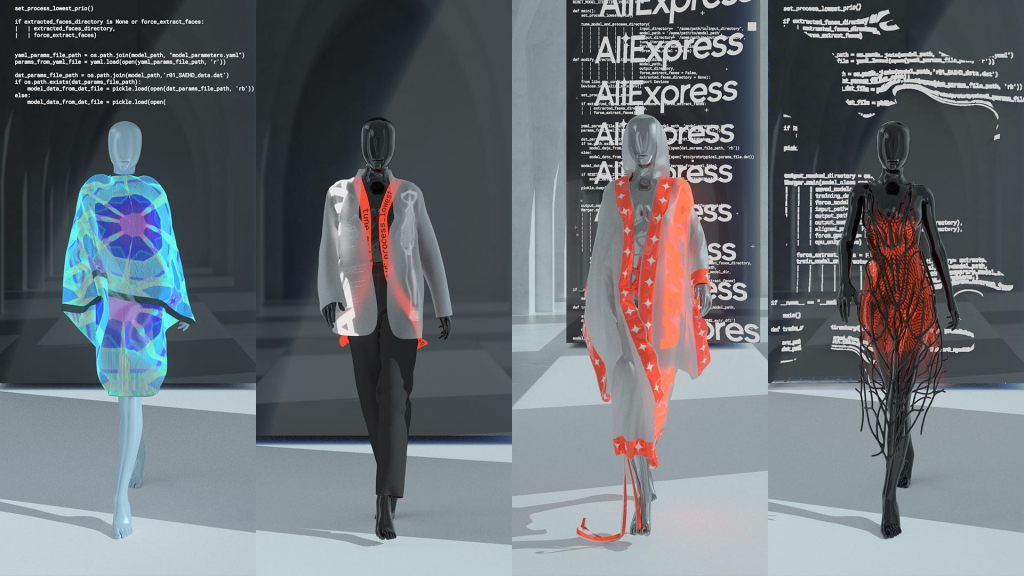Technology has played a crucial role in transforming the fashion industry, driving innovations that not only enhance the functionality and comfort of clothing but also promote sustainable and inclusive practices. From the development of smart fabrics to the integration of mobile devices, tech-infused fashion is redefining what we wear and how we interact with our clothes.
In this context, several brands are at the forefront of this revolution, incorporating technological advancements into their products and processes to meet the demands of an increasingly discerning and conscientious market.

Why Should Clothing Brands Embrace Technology?
The integration of technology into fashion is not just a passing fad; it is a necessary evolution that brings numerous benefits to both brands and consumers. Here are some reasons why clothing brands should embrace technology:
Continuous Innovation
Technology adoption keeps brands at the forefront of innovation. Companies that invest in research and development of new technologies are constantly launching products that surprise and delight consumers, staying relevant in a highly competitive market.
Improved Functionality and Comfort
Technology enables the development of clothing with advanced functionalities, such as temperature-regulating fabrics, waterproof and breathable clothing, and footwear with innovative cushioning systems. These advances not only improve consumer comfort, but also increase the usefulness of clothing in different contexts, from everyday wear to sports and outdoor activities.
Sustainability
With growing environmental concerns, technology offers solutions for sustainable fashion. Brands can use recycled materials, as Adidas does with its Parley for the Oceans line, or develop more efficient and less polluting manufacturing processes. 3D printing, for example, can reduce material waste, while advanced recycling technologies help reuse textile waste.
Inclusivity
Technology can make fashion more accessible to people with disabilities. Brands like Ralph Lauren, with its PoloTech T-shirts, and Levi’s, with its Jacquard jacket, are demonstrating how it is possible to create adaptive clothing that improves the quality of life for people with disabilities, offering products that are both functional and stylish.
Personalization
Technology enables an unprecedented level of personalization. Using data collection and artificial intelligence, brands can offer personalized products that meet consumers’ individual preferences. This includes everything from the perfect fit of clothing to the unique design of one-of-a-kind pieces, creating a more engaging and satisfying shopping experience.
Customer Engagement and Experience
Technologies like augmented reality (AR) and virtual reality (VR) are transforming the way consumers interact with brands. Online shopping experiences can be enhanced with virtual fitting rooms, and physical stores can incorporate interactive elements that make the shopping experience more immersive and fun.
Operational Efficiency
From an operational perspective, technology can streamline the supply chain, improve inventory management, and reduce production costs. RFID systems, for example, help track products in real time, while advanced planning and analytics software enables better demand forecasting and resource management.
The most technological brands
- Innovations: Nike Air, Flyknit, Nike Adapt.
- Description: Nike is renowned for its continuous innovations in sports footwear, using advanced technologies to deliver enhanced performance and comfort. The self-adjusting Nike Adapt system exemplifies the brand’s leadership in developing smart products.
- Innovations: Futurecraft, 3D printing, Parley for the Oceans.
- Description: Adidas combines futuristic design with sustainable practices, using recycled materials and 3D printing to create innovative products. The collaboration with Parley for the Oceans highlights the brand’s commitment to sustainability.
- Innovations: UA Record-Equipped.
- Description: Under Armour stands out with its smart clothing that monitors performance data. The UA Record-Equipped line allows athletes to track and improve their performance through integrated wearable technology.
- Innovations: PoloTech.
- Description: Ralph Lauren integrates activity-tracking sensors into its PoloTech shirts, combining classic style with modern technology to offer a new dimension in clothing.
- Innovations: Jacquard Jacket in partnership with Google.
- Description: Levi’s continues to innovate with the Jacquard jacket, which allows users to control mobile devices through gestures. This partnership with Google demonstrates how technology can be seamlessly integrated into everyday wear.
- Innovations: Solar Charged Jacket, Black Squid Jacket.
- Description: Known for its futuristic clothing, Vollebak creates unique products like the Solar Charged Jacket, which glows in the dark, and the Black Squid Jacket, which changes color, offering exceptional functionality and a visually stunning experience.
- Innovations: Temperature-regulating fabrics.
- Description: Ministry of Supply revolutionizes workwear with fabrics that regulate temperature and resist wrinkles, providing comfort and practicality in professional attire.
- Innovations: Futurelight.
- Description: The North Face uses advanced fabrics like Futurelight, which are waterproof and breathable, ensuring that adventurers can face any weather conditions with confidence.
- Innovations: Omni-Heat, Omni-Freeze.
- Description: Columbia Sportswear is famous for its technologies that enhance comfort in extreme climates, such as Omni-Heat for thermal insulation and Omni-Freeze for cooling, making their clothing ideal for outdoor activities.
- Innovations: RFID.
- Description: Burberry, a luxury fashion icon, uses RFID technology to enhance the shopping experience and combat counterfeiting, ensuring authenticity and exclusivity for its customers.
The Importance of These Brands and Their Practices in the Market
These brands are not only at the forefront of technological innovation in fashion but also play a crucial role in promoting sustainable and inclusive practices. By integrating advanced technology into their products, they are redefining what it means to dress well in the 21st century.
The combination of functionality, comfort, and sustainability offered by these brands is shaping the future of fashion, inspiring other companies to follow suit and adapt to the new demands of an increasingly conscious market.
Through these innovations, these brands not only improve user experience but also significantly contribute to environmental sustainability and social inclusion. By leading this transformation, they show that it is possible to create products that are technologically advanced, environmentally friendly, and socially responsible, pushing the entire fashion industry towards a brighter and more sustainable future.
Want know more about fashion, innovation and technology? Come with us to Worldwide Talks 2024!






